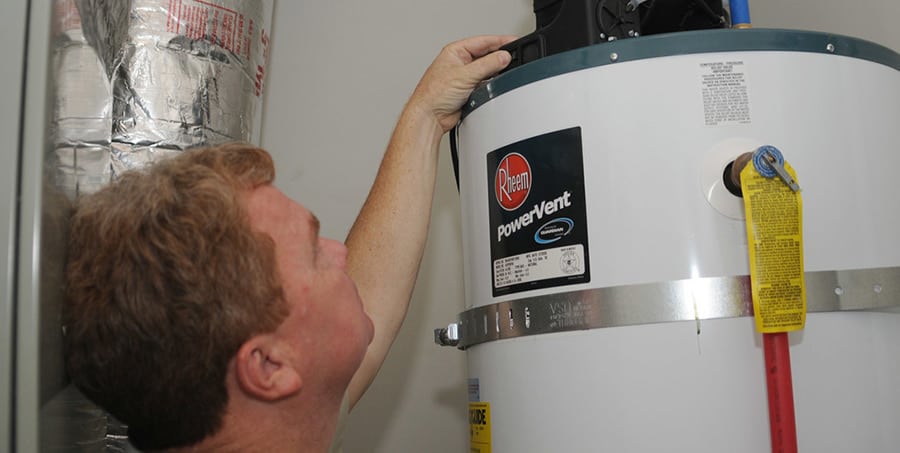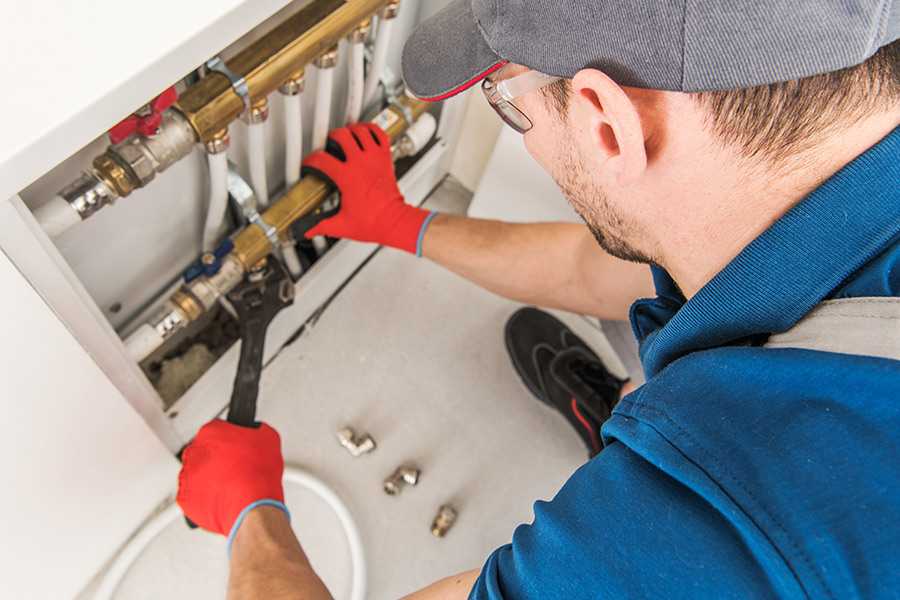Addressing the Everyday Heater Urgent Problems
Addressing the Everyday Heater Urgent Problems
Blog Article
Each person has their unique conception on the subject of Is Your Water Heater Leaking?.

A water heater is among the most essential basic devices that can be discovered in a house. With water heaters, you do not need to experience the anxiety of heating water by hand whenever there is a demand to wash, do the laundry, or the dishes. Nevertheless, there is always an opportunity that your water heater would break down as with a lot of mechanical devices.
It is important to keep in mind any kind of little malfunction as well as tackle it quickly prior to things get out of hand. Most times, your hot water heater begins to malfunction when there is a build-up of sediments as a result of continual use. As a precaution, periodic flushing of your hot water heater is suggested to prevent sediment accumulation and also prevent useful failure.
Common hot water heater emergencies and also how to handle them
Leaking water heater storage tank.
In this scenario, you need to transform off your water heating system, permit it to cool down, as well as very carefully look for the source of the problem. At times, all you need to do is to tighten up a couple of screws or pipe connections in instances of small leaks. If this doesn't function as well as the leak lingers, you may need to use the solutions of a technician for an appropriate replacement.
Fluctuating water temperature.
Your hot water heater might begin creating water of different temperatures usually ice cool or scalding warm. In this situation, the first thing you do is to make certain that the temperature is readied to the desired level. If after doing this, the water temperature level maintains changing throughout showers or various other activities, you might have a malfunctioning thermostat. There could be a need to replace either the home heating or the thermostat device of your water heater.
Too little hot water
It might be that the water heater can't sustain the warm water demand for your apartment or condo. You can upgrade your water heating unit to one with a bigger ability.
Stained or smelly water
You require to understand if the problem is from the container or the water resource when this happens. You are specific that it is your water heating unit that is faulty if there is no amusing odor when you run chilly water. The stinky water can be brought on by rust or the accumulation of microorganisms or sediments in the hot water heater storage tank. Once you see this, you can try flushing out your tank or replacing the anode if the trouble continues. The feature of the anode is to clean out germs from your tank. Considering that the anode pole replacement needs a comprehensive understanding of your water furnace, you will need the assistance of a specialist.
Conclusion
Some homeowners overlook little caution as well as minor faults in their water heater device. This just results in further damages as well as a possible full malfunction of your appliance. You need to take care of your water heater mistakes as soon as they come near avoid even more expenses as well as unnecessary emergency difficulties.
With water heaters, you do not require to go through the stress and anxiety of heating water manually every time there is a need to take a bathroom, do the washing, or the dishes. Your water heating system could start producing water of various temperatures normally ice scalding or chilly warm. It may be that the water heating unit can't support the warm water need for your home. If there is no amusing smell when you run cool water, then you are certain that it is your water heating unit that is damaged. The stinky water can be caused by rust or the accumulation of bacteria or sediments in the water heating system container.
Water Heater Burst: Why This Happens And What To Do Next
Water Heater Explosion Warning Signs
Since storage water heaters are made of metal and store large volumes of heated water, they carry an increased risk of leaking or even exploding as they begin to rust at the fittings and seams over time. If the thermostat controlling the water temperature within the tank is faulty, or if mineral buildup inside the water heater prevents the thermostat from sensing the water’s temperature correctly, the water could become overheated. This will expand its volume within the tank, causing it to press at the tank’s fittings and seams. If these fittings and seams are rusted or corroded, the pressure could result in a leak or even an explosion.
Here are some risk factors and warning signs of an increased risk of water heater leak or explosion:
Your water heater is more than 10 years old. Your water heater makes clanking, banging or rumbling noises as it heats up, indicating that sediment has built up and hardened inside the tank. There is visible rust on the outside of the water heater, especially located at the pipe fittings or the seams that run down the tank. There is rusty water coming from your water heater, indicating that there may be rust building up inside. Your water heater is leaking, which could indicate either a crack somewhere in the tank or a malfunctioning temperature-and-pressure (T&P) relief valve. What To Do When Water Heater Leaks
If you find water dripping or seeping out of your water heater, or pooling around it, it means your water heater is leaking. If you find a leak, it may be best to call a plumbing professional to diagnose the problem and determine how best to handle it. If you choose to tackle it on your own, there are a few things you can do.
TURN OFF THE POWER
Next, shut off the power to the hot water tank at your home’s electrical breaker box. If you don’t shut off the power, the heating elements within the tank could continue to stay hot, which could pose a fire risk.
If you have a gas-powered water heater, you’ll also need to shut off the gas line leading into the tank.
FIND THE LEAK
Now it’s time to determine where the leak is coming from. Likely locations are the T&P valve, the drain valve or one of the pipes or fittings that feed into the top of the tank. If you see any rust or corrosion on the outside of your water heater’s tank, pipes or fittings, these could also be the source of the leak.
REPAIR THE LEAK
Once you determine the source of your water heater leak, you’ll have a better idea of what steps you need to take to fix the problem. It may be a simple fix—such as using a wrench to tighten fittings or replacing the T&P valve—but it may be something more complicated. You may even need to drain the tank, remove the water heater and install a new one.
https://www.abchomeandcommercial.com/blog/water-heater-burst/

We had been brought to that article about Is Your Water Heater Leaking? from an associate on our other website. Sharing is good. Helping people is fun. Thanks for your time. Come back soon.
Professional help? One call away. Report this page